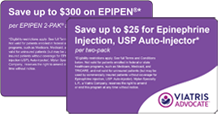
Let's begin with the basics.
Anaphylaxis (pronounced “an-a-fi-lax-is”) is a potentially severe or life-threatening allergic reaction that can occur very quickly—as fast as within a couple of minutes of exposure to the allergen.
It can be triggered by an allergy to a particular food (peanuts or shellfish, for example), biting or stinging insects (like bees), medication (penicillin is a common one), latex (the type of rubber many balloons are made from) or a variety of other allergic triggers. Read more about this topic here: What Causes Anaphylaxis?
The symptoms of anaphylaxis can vary.
Not everyone affected by anaphylaxis will experience the same thing, but common symptoms include hives, itching, flushing and swelling of the lips, tongue and roof of the mouth.
The airway is often affected, resulting in tightness of the throat, chest tightness and difficulty breathing. These life-threatening allergic reactions can also be accompanied by chest pain, low blood pressure, dizziness and headaches.
It's serious stuff, which is why your top priority should be avoiding your known allergen(s) as best you can.
Ever hear of “anaphylactic shock?”
You may have heard of the term “anaphylactic shock,” which occurs when there is inadequate blood flow to critical organs of the body during a life-threatening allergic reaction. Though many people use this term interchangeably with “anaphylaxis,” that is incorrect. Shock can be just one of the many signs of a life-threatening allergic reaction. A person may not even experience shock during anaphylaxis. In fact, according to a 10-year study, more than half of all patients showed no signs of shock during anaphylaxis.
Be careful to avoid allergens...and be prepared.
That’s why it’s important to talk with your doctor about how to identify the signs and symptoms of anaphylaxis. Ask your doctor if EPIPEN® (epinephrine injection, USP) or EPIPEN JR® (epinephrine injection, USP) Auto-Injectors or their authorized generics are something you or your child should be prescribed, as part of an Anaphylaxis Action Plan.
Acting fast is important.
If you, your child or someone you're caring for shows signs or symptoms of a life-threatening allergic reaction, administer EPIPEN or EPIPEN JR Auto-Injector, or the authorized generics, immediately as prescribed and seek emergency medical care. Because they do not treat the life-threatening symptoms of anaphylaxis, antihistamines are not recommended as first-line treatment for anaphylaxis.
It's important to administer epinephrine at the first signs of anaphylaxis. According to national food allergy guidelines, epinephrine is the first-line treatment for life-threatening allergic reactions. A delay in administering epinephrine can be life-threatening.
More in this section:
- Learn about the specific allergic triggers that can cause anaphylaxis
- Being prepared means having a plan
Explore
Explore the latest savings offers for EPIPEN (epinephrine injection, USP) Auto-Injectors and the Authorized Generic for EPIPEN. See Terms and Conditions.
Antihistamines are not recommended for the life-threatening symptoms of anaphylaxis.
heading
INDICATIONS (the following information applies to both EPIPEN and its Authorized Generic)
EPIPEN® and EPIPEN JR® Auto-Injectors are used to treat life-threatening, allergic emergencies in people who are at risk for or have a history of serious allergic emergencies. EPIPEN and EPIPEN JR are for immediate administration by you or your caregiver. They do not take the place of emergency medical care. You should get emergency help right away after using your EPIPEN or EPIPEN JR.

Patient Information
Please select from the following:

Prescribing Information
Please select from the following:


